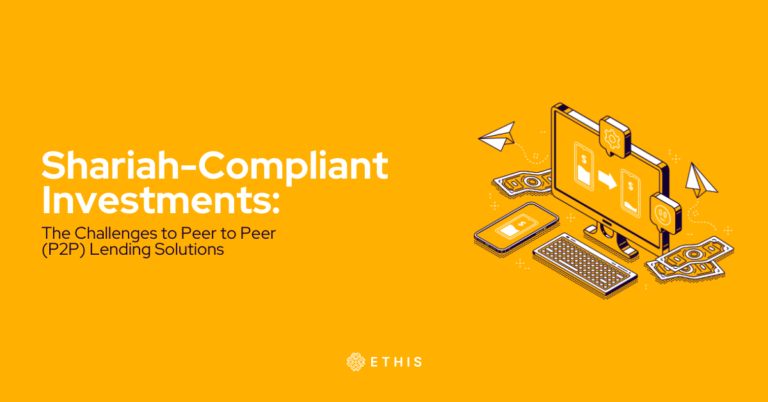Peer to peer (P2P) lending has gained immense popularity in recent years as an alternative investment opportunity. However, for Muslims, the key consideration is whether P2P lending is halal or permissible under Islamic finance principles. In this article, we will delve into the concept of P2P lending and explore its compliance with Shariah law.
The Concept of P2P Lending
Peer to peer lending involves individuals lending money to others without the involvement of traditional financial institutions. This model typically operates through online platforms that connect lenders with borrowers, allowing them to transact without intermediaries.

Credit: www.youtube.com
Shariah Compliance
In Islamic finance, riba (usury) and gharar (excessive uncertainty) are strictly prohibited. Any financial transaction must adhere to these principles to be considered halal. When assessing P2P lending, it is essential to evaluate whether it aligns with these fundamental tenets.
Riba-free Nature
P2P lending platforms focus on profit-sharing or asset-backed financing, which is in line with Islamic finance principles. Rather than charging interest, returns are based on the actual performance of the financed project or asset, thereby eliminating the element of riba.
Transparency And Risk
Islamic finance emphasizes transparency and risk-sharing. P2P lending platforms provide extensive information about the borrowers and the nature of the projects, enabling lenders to make informed decisions. Risk is also shared among multiple lenders, aligning with the concept of mutual responsibility.
Regulatory Framework
Islamic finance institutions have developed regulatory standards for various financial activities. P2P lending may be considered halal if it complies with these established guidelines and is supervised by Shariah advisors to ensure adherence to ethical principles.

Credit: ethis.co
Ethical Considerations
Beyond the financial aspects, P2P lending should also be evaluated based on its ethical impact. Supporting ventures that contribute positively to society and avoiding involvement in speculative or unethical activities are crucial considerations from an Islamic perspective.
Frequently Asked Questions On Is Peer To Peer Lending Halal?
Is P2p Lending Considered Halal In Islam?
P2P lending is permissible in Islam as long as it adheres to shariah principles, such as avoiding interest-based transactions.
How Does Peer To Peer Lending Work?
Peer to peer lending is a way for individuals to lend and borrow money directly with each other, eliminating the need for traditional banks.
What Are The Benefits Of Peer To Peer Lending?
Peer to peer lending offers benefits such as higher returns for lenders, lower interest rates for borrowers, and easier access to credit.
Is My Money Safe When Investing In P2p Lending?
While P2P lending carries certain risks, platforms usually have measures in place to protect investors, such as borrower screening and diversification of investments.
Conclusion
After a comprehensive analysis, it can be concluded that P2P lending can be halal if structured in accordance with Islamic finance principles. The key lies in ensuring the absence of riba, adherence to transparency and risk-sharing, compliance with regulatory standards, and ethical considerations.
As with any financial matter, individuals seeking to engage in P2P lending should seek advice from qualified Islamic scholars or advisors to ensure that their activities are in line with Shariah law.
